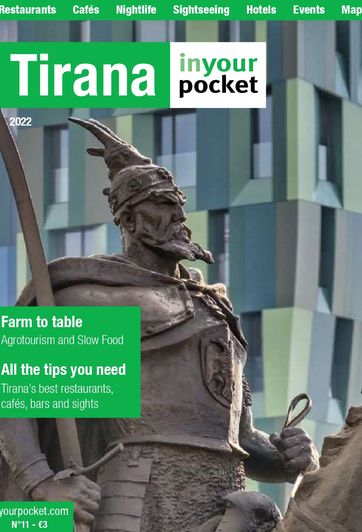The Bektashi sect
more than a year agoBektashis are Muslims and also believe in one God, but their liberal understanding of this is close to the Western concept of pantheism. Their beliefs are based on the teachings of the Prophet Mohammed and the Koran. Bektashi's also venerate the wider prophetic family, especially Mohammed's cousin Ali, and his two grandsons Hassan and Hussein. In this they are close to the Shia branch of Islam. Instead of using mosques, Bektashis meet and pray at temples called tekkes. Bektashism is also noted for its tolerance of other religious faiths.
The Bektashi order was founded by Haji Bektash Veli in the 13th century. Haji Bektash Veli came from Nishapur in Persia (present day Iran) but spent most of his life in Anatolia (now Turkey) as a missionary. During the Ottoman era Bektashism spread to the Balkans, and became particularly strong in the southof what is now Albania. In 1925, Turkish leader Kemal Ataturk banned all Sufi orders, closed the tekkes, and the Bektashis had to relocate their headquarters – Albania was an obvious choice. Soon after, the third Bektashi Congress held in the southern city of Korca in 1929 decided to relocate the headquarters to Tirana.
Having escaped repression under Ataturk, the Bektashi, like all religious communities in Albania, experienced an even greater degree of repression during the communist era. Their leaders were jailed, some killed, their places of worship closed and their property confiscated. Following the collapse of communism, the Bektashi community re-emerged and has been recovering slowly.
Bektashism around the world comes under the authority of a leader, known as the dedebaba (literally great-grandfather) who is chosen by his fellow leaders. The current leader is Hadji Dede Reshat Bardhi, elected in 1992. He has been instrumental in re-establishing the Bektashi tradition
since the fall of the dictatorship. Devotional objects and holy sites have been reconstructed and new leaders have been trained and appointed. He also maintains links with the world community of Bektashis.
Some of the best known figures associated with Bektashim are George Kastriot Skanderbeg, the Frashëri brothers (the most devoted being the poet Naim Frashëri), Ali Pasha of Tepelena, Ismail Qemali and Aqif Pasha Elbasani.
Bektashi events
These are the main Bektashi holidays, pilgrimages and feasts. The first two take place at the tekkes, where non-Bektashis are welcome to come and observe except at certain moments when only some of the Bektashi spiritual leaders may be present.
Ashura – the last and climactic day of a ten day period of mourning which commemorates the death of Mohammed's grandson Hussain at Karbala. The date changes each year on the Western calender but in 2022 Ashura will fall on 7 August.
The Holiday of Sultan Novrus (22nd of March) – this is an old Persian holiday which in Bektashism is a celebration of the new year.
Pilgrimage to Mount Tomorr (2-25 August) – this pilgrimage which attracts Bektashis from all over the world to Mount Tomorr near Berat commemorates Abbas ibn Ali, who died at the battle of Karbala.
Tekkes in and around Tirana
You're welcome to visit the elegant tekke at the Bektashi headquarters, the Bektashi World Centre (Kryegjyshata Boterore Bektashiane), 1km east of the city centre. Near Tirana there are a number of tekkes but only a few of them can be visited. In Kruja, the Dollma tekke is in the grounds of the citadel and is often open. Apart from that Kruja also has the tekkes of Sheshem Babi, Father Hussain Jahja, Sari Salltik and Vele. In Elbasan there is the Great Tekke of Father Xhevai Fakri and the tekke of Father Xhemal. Visits to these tekkes can be arranged via the World Centre.



Comments